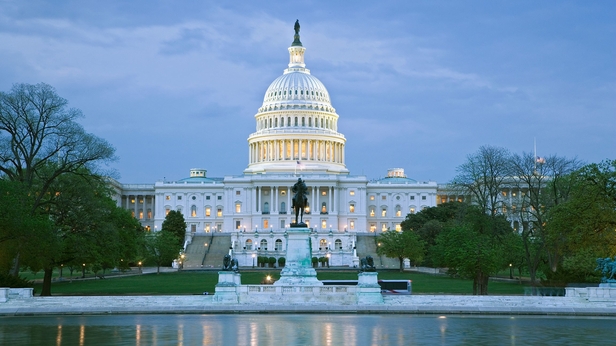
May 11, 2017
[Madison, Wis…] The Trump administration is widely expected to unveil a far-reaching infrastructure proposal in the near future. In anticipation of President Trump’s proposal, more than 50 organizations from around the country, led by Americans for Prosperity, sent a letter to Congress today urging fiscal responsibility. The John K. MacIver Institute for Public Policy signed onto the letter.The letter calls on members of Congress to avoid the wasteful spending of the Obama administration, maximize taxpayer dollars in any new infrastructure spending, and use the opportunity to implement long-overdue reforms that will reduce bureaucracy and cut costly red tape.
The full letter follows.
—
On behalf of our organizations and the millions of Americans we represent, we write to encourage you to prioritize fiscal responsibility while addressing the nation’s infrastructure needs. Previous transportation spending policies shepherded by the Obama administration — the 2009 “stimulus” and all its attendant boondoggles — were chock-full of waste and pet projects and made the nation’s fiscal problems worse. American families cannot afford to repeat the failed mistakes of the past.
Forthcoming transportation plans should be an opportunity for Congress and the Trump administration to further relieve the economy from bureaucratic and regulatory hurdles while maximizing taxpayer dollars. Here’s how:
Reform environmental review processes. Lengthy and often duplicative environmental impact studies increase project costs and drag project timelines. Possible reforms could include the removal of greenhouse gas emissions from the review process and limiting the scope and application of the National Environmental Policy Act as well as other planning and analysis mandates. Doing so would save time and reallocate limited tax dollars from paperwork and red tape to asphalt and concrete.
Repeal draconian labor regulations. Overturning President Barack Obama’s executive order requiring federal contractors to use Project Labor Agreements on federally-funded projects and repealing the Davis-Bacon wage mandate that drives up project costs by 22 percent are two great places to start. Heritage Foundation research shows that repealing Davis-Bacon and reinvesting the funds back into infrastructure would add over 160,000 construction jobs to the economy.
Prioritize transportation dollars on core infrastructure projects. A growing percentage of federal transportation spending — now up to 25 percent of all spending — is going to non-highway projects, diverting these dollars from their ostensible purpose of building roads and bridges. Infrastructure dollars should go toward core projects — not on ancillary projects like highway beautification and public transit.
Empower the states. States, localities, and the private sector understand local needs better than Washington bureaucrats. Local policymakers should have the flexibility to manage projects reflecting local priorities and manage their funding. Federal policymakers can get out of the way by removing existing federal barriers to state-based funding and financing.
Fully pay for projects. The spirit of President Trump’s first budget blueprint, the so-called “skinny budget” that cuts non-defense discretionary spending, should be applied to future transportation spending initiatives. Any new spending should be offset with spending cuts, not tax increases nor budget gimmicks.
Seek spending reforms instead of new funding sources. Two concerning ideas circulating on Capitol Hill include creating a national infrastructure bank and using new revenues from corporate income repatriated from abroad. Congress should be cautious of both. The first would lead to more bureaucracy and subsidies for the politically- connected at taxpayers’ expense, and the second has little to do with transportation issues and instead is a symptom of our broken federal tax code that should be addressed in the context of comprehensive tax reform.
We look forward to working with you in promoting responsibility in upcoming transportation and infrastructure initiatives. Keeping these conservative principles in mind as you craft plan details will improve our nation’s infrastructure and create jobs while protecting taxpayers. Thank you for your consideration.